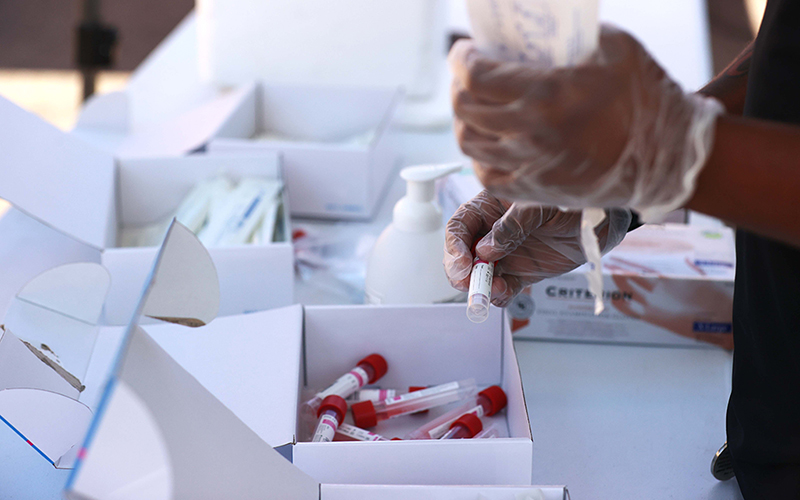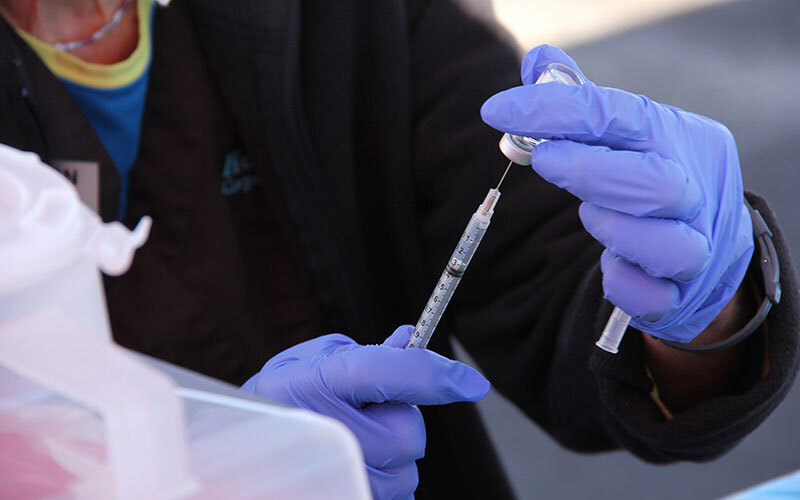PHOENIX – A University of Arizona distinguished professor and top public health adviser recommends Arizonans “stay the course” in response to the omicron variant that was discovered last week in South Africa and now is spreading around the world.
The new strain of the coronavirus that causes COVID-19 probably already is in the U.S., although there are no diagnosed cases, Dr. Richard Carmona said Monday in a UArizona web conference. Although the variant is newly discovered, he said, the mitigation strategies remain the same: get vaccinated, get tested, wear a mask and limit social interactions outside your bubble.
“There should be nobody thinking that because there’s a variant, they don’t need to get this vaccine because they need a new vaccine,” said Carmona, a former U.S. surgeon general who is a leading COVID-19 adviser for the Arizona Department of Health Services. “Not so. It’s still effective, we’re just looking at how effective it is.”
The omicron variant is suspected to be more infectious than the current variant, and potentially more capable of reinfecting those who have recovered from the virus, according to the World Health Organization.
Carmona said it will be several weeks before scientists will know more about its characteristics.
Omicron already has spread to Israel, Hong Kong, Canada and several European countries. As of Monday, the United States has restricted travel for non-citizens from South Africa and seven neighboring countries: Botswana, Zimbabwe, Namibia, Lesotho, Eswatini, Mozambique and Malawi.
“This variant is a cause for concern, not a cause for panic,” President Joe Biden said in a speech on Monday.
But Carmona said Arizonans need to stay vigilant about all variants of the coronavirus.
As of Monday, 62% of eligible Arizonans have received at least one dose of vaccine, compared to the national average of 69%, according to data from the Arizona Department of Health Services, and the Centers for Disease Control.
Concern over omicron comes as Arizona already is facing a daily infection rate of 45 per 100,000 people, 14th highest in the nation and well above the national average of 25 per 100,000, according to data from the University of Arizona, placing strain on the state’s medical systems.
“There aren’t enough beds,” Carmona said, “and even if you can find geographic space in a bed, you don’t have a nurse, you don’t have a respiratory therapist and so on.”
In the case of Banner Health, which cares for 44% of COVID-19 patients in the state, around 120 patients were waiting to be transferred into hospitals that matched their required level of care because of a lack of space, he said.
The situation is expected to worsen as winter visitors head to Arizona for the winter months, placing additional demand on hospitals.
“The message is we cannot get complacent,” Carmona said. “Everyone needs to get vaccinated.”




